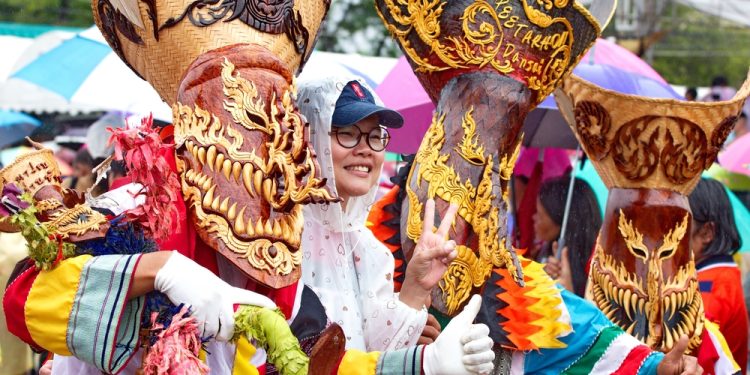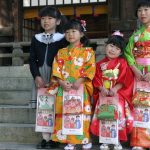
Ghost Festival
The Ghost Festival is a traditional Taoist and Buddhist festival held in several different East Asian countries. Also known as the Hungry Ghost Festival, the Yulan Festival, Gui Jie, and Zhongyuan Jie, this holiday is observed on the 15th night of the seventh month of the Chinese calendar.
This holiday is when people believe that the gates of hell open, and the dead are allowed to walk among the living in search of food. That kind of makes it like Halloween in the West but with more emphasis on the spiritual aspect of this holiday than what Westerners place on Halloween.
The History Of The Ghost Festival
Although the history of the Ghost Festival is somewhat vague and seemingly lost to the veil of history, it is believed that this holiday began in ancient India. It is thought to go back to ancient Mahāyāna texts such as the Ullambana Sutra and The Yulanpen Sutra. In these texts, Maudgalyayana achieves a spiritual “knowing” known as Abhijñā.
This granted him some supernatural powers—one of which was the ability to see past lives. Maudgalyayana then discovers that his deceased mother was reborn as a Preta—a ghost that is eternally hungry and in a state of suffering. Since she was in a wasted condition, Maudgalyayana tried to give her a bowl of rice.
Unfortunately, since she was a Preta, she was unable to consume the bowl of rice, and it instantly turned into burning coal. In one last attempt to save his deceased mother, he turned to Buddha for help. Buddha then gave him the instructions he needed to help his mother.
These instructions allowed children to help their current parents in this life and their deceased parents in the next life by giving food and other items to the public or monastic community during Pravarana.
Of course, some forms of this holiday are even older than those described in the Yulanpen Sutra. Theravadan forms of the festival in Southeast and Southern Asia go back even further to the Petavatthu—a scripture that dates back to the 3rd century BC.
Ghost Festival Observations
The Ghost Festival is held on a date when a confluence of different events all take place simultaneously during this holiday. It is observed in the seventh month of the Chinese calendar, at the same time as the full moon, the rebirth of ancestors, and the fall harvest.
It also occurs at the same time as the peak of monastic asceticism in the Buddhist religion. According to tradition, the gates of hell are opened during this time, and ghosts are allowed to roam freely in the countryside and among the living.
These ghosts are believed to be the ancestors of those who forgot to pay tribute to them after their death or were not given proper burial rites. These ghosts, known as Preta, have long necks that are needle-thin—so thin that they are unable to swallow food. During this time, prayers are offered to deceased relatives, as well as food and drink to appease these spirits.
It is also a time when people burn hell money — joss paper resembling banknotes. It is believed that this joss paper has value in the afterlife and is used much in the same way as money. People also burn paper houses, television sets, cars, and even paper servants to please these spirits.
On the fourteenth day of the seventh month, a large feast is held for the ghosts of the spirits that roam the earth. People also hold Buddhist and Taoist ceremonies on this day, burn incense, and float water lanterns. In Malaysia and Singapore, live concerts known as Getai or Koh-Tai are performed by singers, entertainers, dancers, and other performing artists.
The front row of the concert is left empty for the roaming ghosts. It is considered unlucky for any living person to sit in them during the concert. In Taiwan, the entire seventh lunar month of the year is celebrated as Ghost Month. On the very first day, the gate of a temple is opened, representing the gates of hell opening.
On the twelfth day of the month, all the lamps on the main altar of the temple are lit. The next day, there is a procession of lanterns, and the day after that, a parade is held, and water lanterns are released. It is common for people to avoid any surgery during this month, to avoid moving, marrying, or taking pictures after sunset.
People also avoid buying cars, swimming, or whistling. The Ghost Festival is celebrated in other countries around the world, including Vietnam, Laos, Cambodia, Sri Lanka, Thailand, India, and Indonesia.








